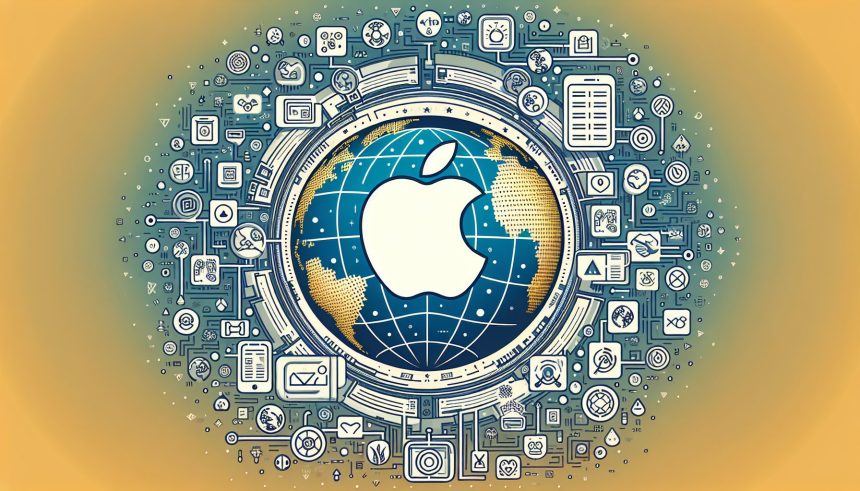As the 16th birthday of the App Store approaches, Apple Inc. is grappling with an array of legislative challenges across different countries, disrupting the once standard, universal shopping experience the tech giant had to offer.
Despite the inconsistent policies, digital taxes, and varying parental controls among countries, Apple is committed to maintaining the integrity and seamlessness its users have grown accustomed to over the years.
Since 2008, the App Store has served consumers in 175 countries faithfully, carving out an “economic miracle” worth over $1 trillion in sales and creating over seven million jobs in the global economy.
The popularity of the App Store has grown, thanks to the diversity and high-quality applications it offers to customers. This success has not gone without scrutiny, particularly by developers who question the fairness and competitiveness of Apple’s stringent regulations.
Notwithstanding the moderate pushback, the App Store remains an instrumental part of the digital economy, fostering entrepreneurship and sparking extraordinary economic growth on a colossal scale.
Looking to the future, Apple is determined to offer a safe, reliable, and intuitive platform, driving further success while ensuring regulatory compliance and utmost customer satisfaction.
With the looming 16th anniversary of the App Store, Apple’s operation already faces regulatory changes from stringent global regulators promoting competition in the digital marketplace.
Competition laws and ongoing antitrust suits in specific countries are pushing Apple to reconsider its exclusive application distribution practice,putting pressure on the tech giant to create a balanced ecosystem for global developers.
As a result of this swift regulatory change, the tech community keenly anticipates how this shift will affect the dynamics within the App Store and other digital marketplaces.
These transformative laws could lead to the advent of alternative app stores and payment systems, potentially providing consumers with more choice and lower prices, inevitably fostering innovation and levelling the playfield for smaller developers.
However, alongside the benefits, there are rising concerns about security and consumer protection presented by alternative app stores or payment systems.
Even with these concerns, proponents of the legislation argue that the benefits outweigh the possible risks and highlight the potential economic benefits and significance of challenging monopoly powers in the tech market.
New regulations are not only threatening Apple’s control over its platform but also causing uncertainty amongst app developers who have enjoyed the stability and security provided by Apple’s infrastructure.
As a result, users might have to prepare for a less unified, potentially chaotic App Store experience that deviates from Apple’s hallmark of seamless user experience.
The previously uniform App Store now includes a mix of digital marketplaces varying based on a country’s legal system, introducing a fragmented shopping experience for users based on their geographical location.
This geographical divide poses unique compliance and availability challenges, prompting retailers and consumers to adapt accordingly.
Overall, the landscape of the digital app market is rapidly evolving due to regulatory changes promoting competition and fairness. As Apple navigates this uncharted territory, only time will tell how these new regulations will shape the future of the app market.







